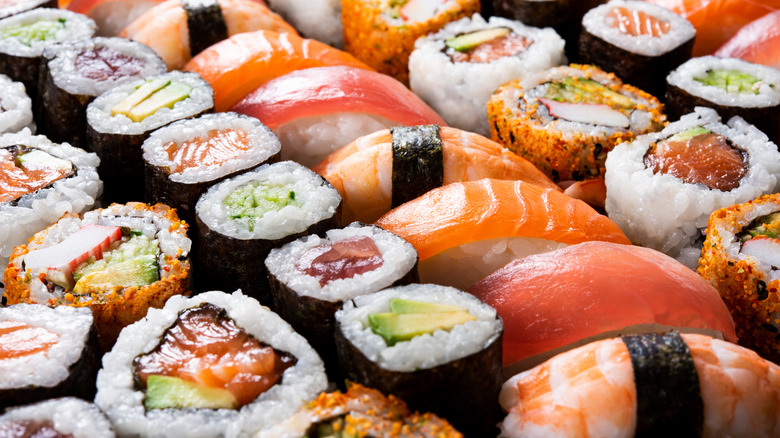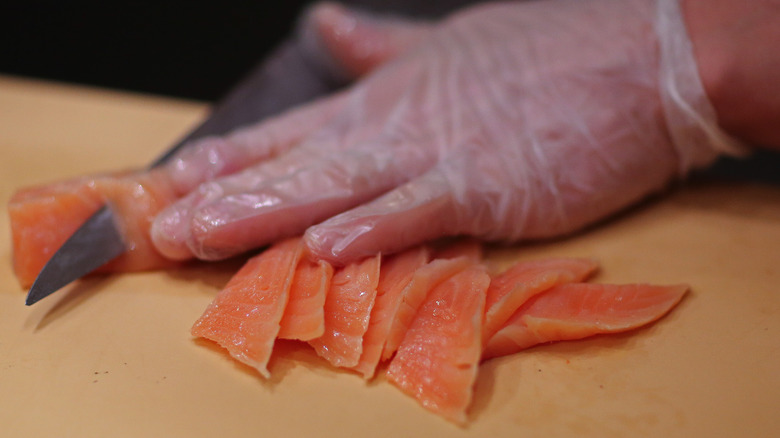Debunking The Myth Of 'Sushi-Grade' Fish
If you're anything like 84% of 18 to 34-year-olds, you've eaten sushi at least once in your life (via Kelton). The traditional Japanese dish has grown in popularity across America over the last decade. According to Food Truck Empire, the industry was valued at around $22 billion in 2020, with thousands of sushi restaurants popping up in cities and on street corners in the U.S. While there are all different types of sushi, from trendy California rolls to the more minimalist sashimi, there's one thing many have in common — they contain raw fish.
However, before you get grossed out, note that the raw fish that most sushi chefs use isn't just your run-of-the-mill raw tilapia you'd snag off the grocery store shelf. Instead, it's what they call "sushi-grade" fish. But what does that really mean? Is it really any different or any better than regular fish? Here's what you need to know about what is and isn't sushi-grade fish, especially if you plan to make a few rolls yourself at home.
There are no official standards for sushi-grade fish
When you're shopping for salmon or tuna to use in your sushi rolls, you're likely adamant that your fish be labeled sushi-grade. But what exactly does that mean? According to The Kitchn, not too much. Apparently, there aren't any official or universal standards that fish must meet in order to be considered sushi-grade. The only requirement? "Parasitic fish, such as salmon, should be frozen to kill any parasites before being consumed raw," the outlet explains. "The best practice for this is flash freezing on the boat immediately after the fish is caught, which preserves freshness and texture."
Essentially, sushi-grade just means that you're buying the highest quality fish available at the time. But you should take the label with a grain of salt. Davis Herron, director of the retail and restaurant division at The Lobster Place fish market in Manhattan's Chelsea Market told Serious Eats, "It's a marketing term that has little significance [with respect] to actually being able to consume raw fish."

